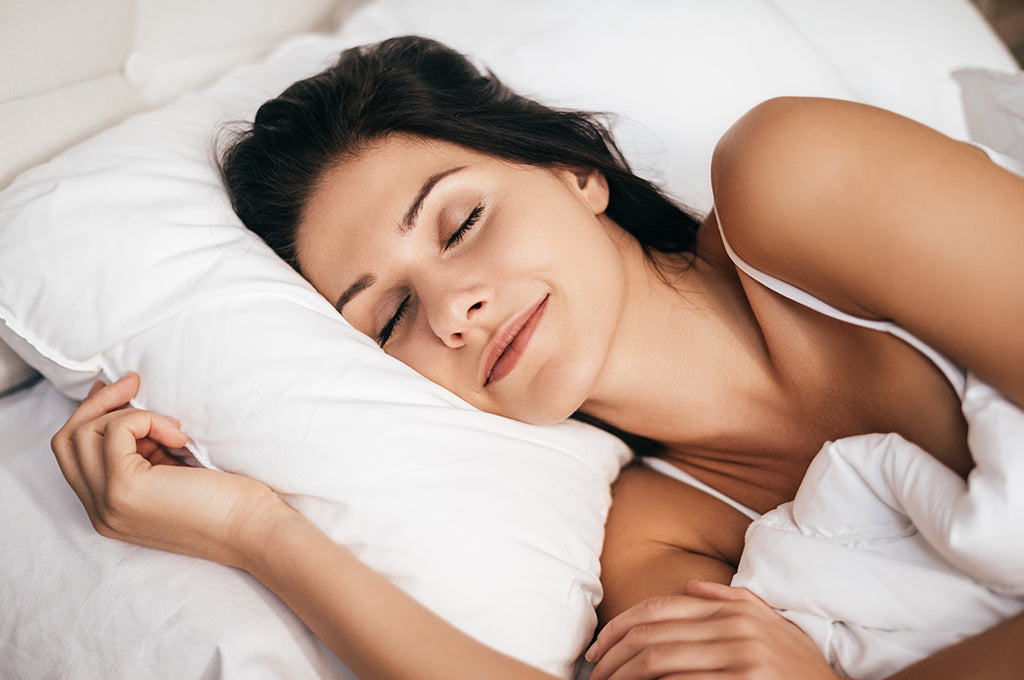Wake up to the benefits of a good night's sleep
19th October 2018 / Health
Wake up to the benefits of a good night's sleep
Emily Hedgman

While the negative impacts of not getting enough sleep are well-documented, it's easy to overlook the many positive benefits of getting a good nights sleep.
Sleeping well cuts cravings
It turns out that poor sleep and night-time snacking go hand in hand. One study by University of Arizona Health Sciences sleep researchers found that lack of sleep quality led to an increased tendency to snack on so-called ‘junk’ foods before bed – in turn leading to an elevated risk of diabetes and obesity. We’re not suggesting that you can sleep yourself slim, but getting enough sleep might make it a little bit easier to resist the chocolate biscuits before bed.
Sleep keeps you young
Not to be alarmist, but sleeping well is essential to continue feeling young age we age. Matthew Walker, a professor of psychology and neuroscience at Berkeley says “We’ve done a good job of extending lifespan, but a poor job of extending our health span. We now see sleep, and improving sleep, as a new pathway for helping remedy that”.
What we might mistake for needing to sleep less as we age, is actually a reduction in sleep quality, due to a decrease in deep non-rapid eye movement (NREM) sleep. Rather than accepting less sleep as a fact of life as we age, it’s worth looking into ways to preserve your quality of sleep.
Being well rested helps you feel less lonely
It turns out that not getting enough sleep can kill your social life. Researchers at the University of California, Berkeley, have found that sleep-deprived people are more likely to feel lonely and avoid engaging socially with others. Being social animals as we are, our social life is essential to our mental (and physical) wellbeing. On the plus side, the researchers found that just one night of good sleep can have you feeling more outgoing and confident, qualities which in turn attract others.
7-8 hours sleep boosts your immune system
A study conducted on identical twins with different sleep patterns found that the twin that slept less had a depressed immune system, compared to that of their sibling. This is not the first time that the immune response has been linked to sleep. In one study they exposed sleep-deprived people to a form of a virus and found that they became infected at a higher rate than non-sleep deprived people.
One thing to remember is that even though not-enough-sleep is detrimental to your health, too much sleep is also not ideal. Between 7-8 hours is the amount recommended by the NHS for healthy adults. People who slept more than that performed surprisingly similar to people not getting enough sleep on memory and learning tests.
If you’re looking to improve your sleep quality naturally, without leaving yourself feeling groggy the next morning, our Night complex contains Food Based™ Magnesium, plus lemon balm extract, glycine, reishi mushroom and Montmorency cherry.
From The Blog
-

25th February 2025 / Health
Empowering Women’s Health: Key Supplements for Well-being
Women’s health is a lifelong journey, with each stage presenting unique nutritional and wellness needs. From maintaining energy levels to supporting hormonal balance and bone health, the right comb...
Read article -

17th February 2025 / Health
Empowering Women’s Health: Lifestyle Tips and a Key Supplement for Perimenopause and Menopause
NaomiWomen’s health evolves through various life stages, and the transition into perimenopause and menopause brings unique challenges. During these phases, hormonal fluctuations can lead to symptom...
Read article -

10th February 2025 / Health / Products
The Best Foods and Drinks to Help Your Body Recover from Burnout
Burnout is a growing issue in today’s fast-paced work culture, leaving many people feeling exhausted, overwhelmed, and depleted. While rest and self-care are essential, nutrition plays a crucial ro...
Read article




